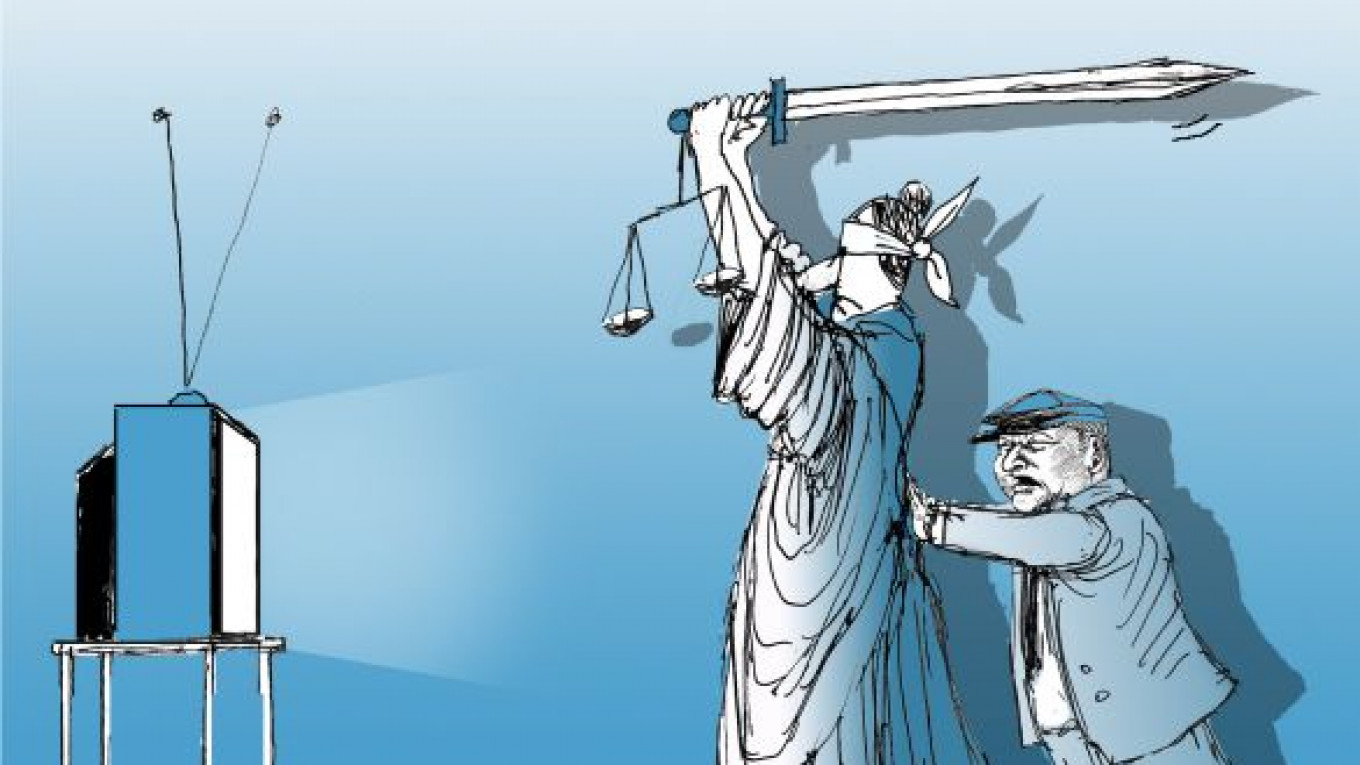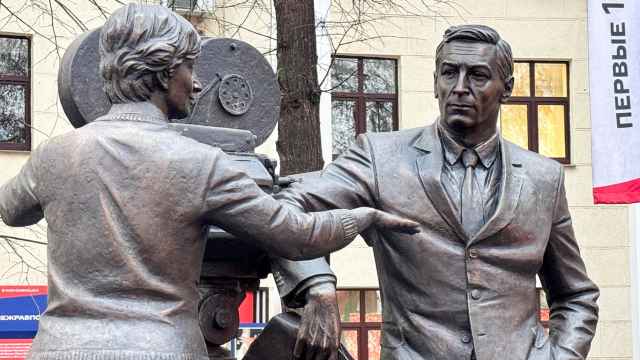This last week, Russian television got its teeth into Mayor Yury Luzhkov with some breathtaking revelations, such as that he likes bees, his wife is very rich, and he has allowed a lot of old buildings to be knocked down.
It started with NTV on Friday, which hastily announced a change to its schedule to fit in “Delo v Kepke” (or roughly, “The Cap Affair”), a punchy documentary that was billed as an expose of the mayor’s dark side. It featured some very creative editing, so that between each ominous claim it switched to Luzhkov beaming in front of his famous beehives and saying something innocuous yet suggestive, like: “I never sell my honey. I have a lot of friends.”
Whatever you think about the portly city leader, the show was not exactly subtle or investigative, let alone giving Luzhkov a chance to answer back. Narrated by an unidentified, deeply concerned voice, it was set to driving music and featured unflattering footage of Luzhkov waltzing with his billionaire wife, real estate mogul Yelena Baturina.
The show got good ratings in Moscow, with about a quarter of viewers tuning in, Kommersant wrote. It has been viewed more than 600,000 times on YouTube.
The show was thrown together at the last moment, Kommersant reported, with the makers having just 24 hours to do it. They dragged in some interesting specimens to comment, including Sergei Dorenko, a journalist once renowned for his anti-Luzhkov exposes on Channel One. Another was German Sterligov, a highly eccentric businessman who once stood against Luzhkov as a mayoral candidate and has now rejected city life for farming and funds an anti-abortion campaign.
Suddenly, figures who usually only appear in opposition media got air time. Among them were campaigners against plans — backed by Luzhkov — to build a highway through a forest in Khimki outside Moscow, including Khimkinskaya Pravda newspaper editor Mikhail Beketov, cruelly shown helpless and incoherent after being left brain-damaged by a brutal attack.
The show’s central conceit — that Luzhkov spent more money on bees than on paying for disabled and elderly Muscovites to go on holiday during the August smog — was lifted from a report from the Tvoi Den tabloid in August, which claimed that Luzhkov allocated 256.6 million rubles to an agricultural complex where his bees live, while he gave 105 million rubles to evacuate Muscovites ($8.27 million and $3.38 million, respectively).
The other channels also got in on the act over the weekend, giving airtime to architectural preservationists, who talked about the buildings destroyed under Luzhkov’s rule, in a rare chance for them to spread the word.
On Channel One, even the current-affairs comedy show “Projector Paris Hilton” joked about Luzhkov. Connecting the Khimki forest controversy and the summer smog, co-star Ivan Urgant quipped that chopping down the trees would solve the problem: “As the old saying goes, there’s no smoke without a forest.”
Luzhkov has answered back in his own way with legal action, announcing that he is suing the television channels as well as Tvoi Den and its web site Lifenews.ru.
Rather aptly, Channel One thought this week would be a good time to launch a show parodying the news, called “Yesterday Live,” in an apt comment on Russian television news’ tendency not to risk using real live footage.
The show, which picked new faces from the student comedy show “KVN,” or “Club of the Merry and Inventive,” had sketches parodying news anchors, reporters and film critics. Unfortunately, most of the gags were pretty lame. The most topical was a joke that Muscovites saved “up to $800 million on makeup per day” by wearing face masks during the smog.
A Message from The Moscow Times:
Dear readers,
We are facing unprecedented challenges. Russia's Prosecutor General's Office has designated The Moscow Times as an "undesirable" organization, criminalizing our work and putting our staff at risk of prosecution. This follows our earlier unjust labeling as a "foreign agent."
These actions are direct attempts to silence independent journalism in Russia. The authorities claim our work "discredits the decisions of the Russian leadership." We see things differently: we strive to provide accurate, unbiased reporting on Russia.
We, the journalists of The Moscow Times, refuse to be silenced. But to continue our work, we need your help.
Your support, no matter how small, makes a world of difference. If you can, please support us monthly starting from just $2. It's quick to set up, and every contribution makes a significant impact.
By supporting The Moscow Times, you're defending open, independent journalism in the face of repression. Thank you for standing with us.
Remind me later.






